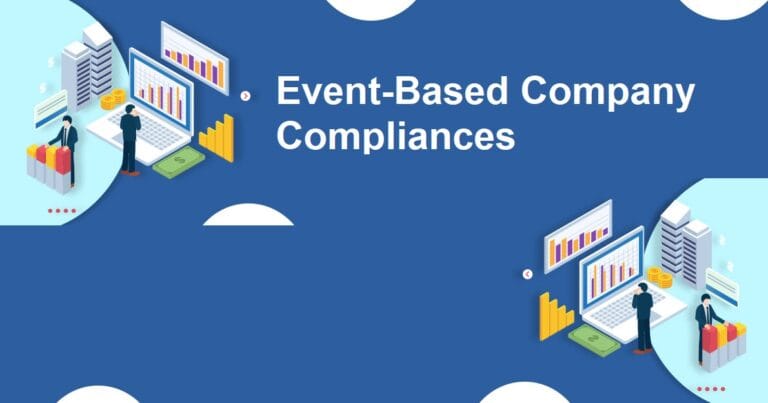Setting up a business in India involves navigating various legal, regulatory, and procedural steps. India is an attractive destination for entrepreneurs due to its large market, skilled workforce, and favorable government policies aimed at promoting business growth. Here is a detailed guide on the process, requirements, and best practices for setting up a business in India.
Step-by-Step Guide to Setting up a Business in India
1. Choose the Type of Business Entity
Common Business Structures in India:
- Sole Proprietorship: Owned and operated by a single individual. Simple to set up but offers no limited liability protection.
- Partnership Firm: Owned by two or more individuals who share profits and losses. Requires a partnership deed.
- Limited Liability Partnership (LLP): Offers limited liability to partners and requires registration with the Ministry of Corporate Affairs (MCA).
- Private Limited Company (Pvt Ltd): Requires at least two shareholders and two directors. It provides limited liability protection and is suitable for businesses looking to scale.
- Public Limited Company (PLC): Can offer shares to the public and requires at least seven shareholders and three directors. Suitable for larger enterprises.
- One Person Company (OPC): A type of private company with only one shareholder and one director, providing limited liability.
2. Name Reservation and Incorporation
Steps for Incorporation:
- Digital Signature Certificate (DSC): Obtain DSC for the directors/signatories for electronic filing.
- Director Identification Number (DIN): Apply for DIN for the proposed directors.
- Name Reservation: Use the RUN (Reserve Unique Name) service on the MCA portal to reserve your business name.
- Incorporation Documents: Prepare the Memorandum of Association (MoA) and Articles of Association (AoA), which outline the company’s objectives and rules.
- Filing for Incorporation: File the incorporation application (SPICe+ form) with the MCA, along with the required documents, such as identity proof, address proof, and consent to act as a director.
3. Obtain Necessary Registrations and Licenses
Key Registrations and Licenses:
- Permanent Account Number (PAN): Apply for a PAN for your business entity.
- Tax Account Number (TAN): Required for deducting and remitting tax at source.
- Goods and Services Tax (GST) Registration: Mandatory if your turnover exceeds the threshold limit or if you engage in inter-state supply of goods/services.
- Professional Tax Registration: Required in some states for businesses employing staff.
- Employees’ Provident Fund (EPF) Registration: Mandatory if you have more than 20 employees.
- Employee State Insurance (ESI) Registration: Required for businesses with more than 10 employees.
- Shops and Establishment Registration: Mandatory for businesses operating from commercial premises.
- Industry-Specific Licenses: Additional licenses may be needed based on the industry (e.g., FSSAI for food businesses, Drug License for pharmaceuticals).
4. Set Up a Business Bank Account
- Open a Bank Account: Open a current account in the business name to manage financial transactions. Provide incorporation documents, PAN, and address proof of the company.
5. Compliance and Filing Requirements
Ongoing Compliance:
- Annual Filings: File annual returns and financial statements with the MCA.
- Income Tax Returns: File annual income tax returns for the business.
- GST Returns: File monthly/quarterly and annual GST returns.
- TDS Returns: File quarterly TDS returns if applicable.
- Board Meetings and Minutes: Conduct regular board meetings and maintain minutes as per the Companies Act.
Best Practices for Setting up a Business in India
- Legal Compliance: Ensure compliance with all legal and regulatory requirements to avoid penalties and legal issues.
- Professional Advice: Seek advice from legal, financial, and business consultants to navigate the setup process smoothly.
- Market Research: Conduct thorough market research to understand the demand, competition, and potential challenges in your industry.
- Business Plan: Develop a detailed business plan outlining your business model, target market, financial projections, and growth strategies.
- Funding and Capital: Explore funding options such as bank loans, venture capital, angel investors, and government schemes for startups.
- Technology and Infrastructure: Invest in appropriate technology and infrastructure to support your business operations and growth.
- Networking: Join industry associations, chambers of commerce, and networking groups to build connections and gain insights into the market.
Setting up a business in India involves a series of structured steps, from choosing the right business entity to complying with legal requirements and obtaining necessary registrations. By following this guide and adhering to best practices, entrepreneurs can establish a strong foundation for their business in India. The process, while intricate, is designed to support the growth and development of businesses, contributing to the dynamic and rapidly growing Indian economy.
At Ujjwal Gupta & Co
We, at Ujjwal Gupta & Co, are dedicated to delivering personalized, high-quality solutions tailored to meet your financial and business needs. With our team of professionals and a client-first approach, we ensure that every challenge is met with expert guidance and strategic insight.
We are dedicated to ensuring your business’s success by providing best service practice available in the industry and that too at a cost effective pricing. Our team of experts is excited to work with you and provide the support you need to thrive in the Indian business landscape.
Our only motive is to create Value for Our Clients and accordingly, have a Client Value System at our Office.
So, let us help you navigate the complexities of finance and compliance, empowering you to focus on what matters most — growing your business. Get in touch today, and take the first step towards financial peace of mind.
In India, businesses can be set up under various legal structures:
- Sole Proprietorship: A business owned and operated by a single individual.
- Partnership Firm: A business run by two or more partners under a partnership deed.
- Limited Liability Partnership (LLP): A hybrid structure with the benefits of both a partnership and a company, where liability is limited to each partner’s contribution.
- Private Limited Company (Pvt. Ltd.): A company with limited liability, privately held by a small group of shareholders.
- Public Limited Company: A company with limited liability, which can raise capital from the public by issuing shares.
- One Person Company (OPC): A company owned and managed by a single person, introduced under the Companies Act, 2013.
- Branch Office/ Liaison Office/ Project Office: For foreign companies looking to establish a presence in India.
To register a company in India, follow these steps:
- Obtain a Digital Signature Certificate (DSC) for the directors.
- Apply for a Director Identification Number (DIN).
- Reserve a company name via the MCA (Ministry of Corporate Affairs) portal.
- Draft and file the company’s Memorandum of Association (MOA) and Articles of Association (AOA).
- Submit the required documents through the SPICe+ form (Simplified Proforma for Incorporating Company Electronically) on the MCA website.
- After approval, obtain the Certificate of Incorporation from the Registrar of Companies (RoC).
The licenses required depend on the type and nature of the business. Common licenses include:
- Goods and Services Tax (GST) Registration for businesses involved in the sale of goods or services.
- Trade License issued by the local municipality for conducting business.
- Import Export Code (IEC) for businesses engaged in import/export activities.
- Shops and Establishment License for businesses with a physical establishment.
- Professional Tax Registration for employers and professionals (varies by state).
- FSSAI License for businesses dealing with food products.
GST registration is mandatory for businesses whose annual turnover exceeds the threshold limit (currently ₹40 lakhs for goods and ₹20 lakhs for services). To register:
- Visit the GST portal and fill in the application form (Form GST REG-01).
- Submit documents such as PAN card, proof of business address, and bank details.
- Verification is done, and if approved, a GSTIN (GST Identification Number) is issued.
Yes, foreign companies can set up businesses in India in the following ways:
- Wholly-Owned Subsidiary: A foreign company can incorporate a wholly-owned subsidiary in India.
- Joint Venture (JV): A foreign entity can partner with an Indian company to form a joint venture.
- Branch Office: For carrying out business operations, subject to RBI and government approval.
- Liaison Office: To act as a communication channel between the foreign company and Indian customers/partners.
- Project Office: Set up for executing specific projects in India.
The FDI policy in India governs foreign investment in Indian companies. It operates under two routes:
- Automatic Route: Foreign investment does not require prior approval from the government or RBI.
- Government Route: Sectors requiring prior approval from the government for foreign investment. Sectors like retail, defense, real estate have caps or restrictions on FDI, while sectors like IT, manufacturing, e-commerce allow 100% FDI under the automatic route.
The time to incorporate a business varies depending on the business structure and complexity. Generally:
- A Private Limited Company can take around 10-15 working days if all documents are in order.
- LLPs and sole proprietorships may take 7-10 days. The time may vary depending on government approvals and processing times.
Indian businesses are subject to several taxes:
- Corporate Tax: Companies in India are taxed at rates ranging from 22% to 30% (for domestic companies), depending on turnover and incentives.
- Goods and Services Tax (GST): An indirect tax applicable on goods and services, with rates ranging from 5% to 28%.
- TDS (Tax Deducted at Source): Businesses need to deduct taxes on payments such as salaries, rent, and professional fees.
- Professional Tax: A state-imposed tax on individuals earning income, including employees, professionals, and businesses.
The Ministry of Corporate Affairs (MCA) regulates the incorporation and functioning of companies in India. It is responsible for:
- Approving company names and issuing the Certificate of Incorporation.
- Regulating corporate laws, such as the Companies Act, 2013.
- Filing annual returns, financial statements, and compliance documents.
- Managing online company-related services through its e-governance portal.
Businesses in India must comply with several labor laws, including:
- The Employees’ Provident Funds (EPF) and Miscellaneous Provisions Act, 1952: Mandatory contribution to employees’ provident fund.
- The Employees’ State Insurance Act, 1948 (ESI): Social security for employees earning below a specified threshold.
- The Payment of Gratuity Act, 1972: Applicable to companies with 10 or more employees, for gratuity payment upon retirement.
- The Minimum Wages Act, 1948: Mandates the minimum wage employers must pay employees.
- The Shops and Establishments Act (varies by state): Governs the working conditions of employees, including hours of work, overtime, and holidays.
Why Choose UGC?

Client Centric Approach
Client is the key driver of our service offerings. Our approach to service offerings is based on a client centric and customized approach. Our specialized teams are a mix of technical and industry experience in order to serve clientele for their specific needs.

Team Work
We have built high performing teams supported by strong work ethic. Our team is a mix of experts, professionals and support staff from technical and varied academic, social and ethnic backgrounds. We believe diversification plays a vital role in motivating the team.

Quick Turnaround
We always endeavour for a quick turnaround time to serve our clientele. We are supported by an experienced and client focussed support teams to offer timely services to our clientele. In case of any business exigencies and time sensitive service requirements, you can always count on us.

Open Communications
We believe that open communication is the core principle in order to demonstrate trust, build long lasting and valuable relationships with clientele. We are committed to ensuring transparency in communication, service offerings and delivery. We provide professional services to our clients.

Client Value System
We value for the Client time and thus, we offer services that are value for money. Quality professional services are provided to our clients, so that they are able to achieve their desired results. We are a quality trademark in the industry and thus, our clients count on us always.

Quality in Delivering Work
Our service offerings are driven by quality and reviews at every level. We strive to provide a qualitative and value-added delivery to our clientele. At all times, we endeavour to provide exceptional client service by meeting client expectations and driving client satisfaction.
Other Related Services
Section 29A lists a set of disqualifications for persons or entities from submitting a resolution plan for an insolvent company. It aims to prevent those responsible for the financial distress of a company, such as willful defaulters, from regaining control of it during the resolution process.
Section 29A disqualifies:
- Willful defaulters.
- Persons who have their accounts classified as Non-Performing Assets (NPAs) for more than one year and have not settled their dues.
- Persons convicted of an offense punishable with imprisonment of two or more years.
- Persons banned from trading in securities.
- Related parties connected to the defaulting debtor, such as promoters or directors of the company.
- Persons disqualified under Section 164(2) of the Companies Act, 2013.
Due diligence under Section 29A is a critical process to verify whether a potential resolution applicant meets the eligibility criteria. It ensures that disqualified persons or entities do not submit resolution plans, safeguarding the insolvency process from being misused by defaulting promoters or other ineligible parties.
Insolvency Professional or IPs are licensed professionals who manage the affairs of the debtor during the insolvency process, acting as an intermediary between creditor and debtor.
Like any law there are operational challenges in the implementation of the resolution process. A big reason is that interests of various stakeholders such as operational creditors, workmen/employees and even the promoters needs to be balanced to reach a resolution. Then there are legal complexities of the law and the various judicial interpretation that arises with it that can complicate matters sometimes.
If the Insolvency Process fails, then the entity goes into liquidations. The proceeds from liquidation are distributed among the creditors of the corporate debtor in a specific order of priority.

























